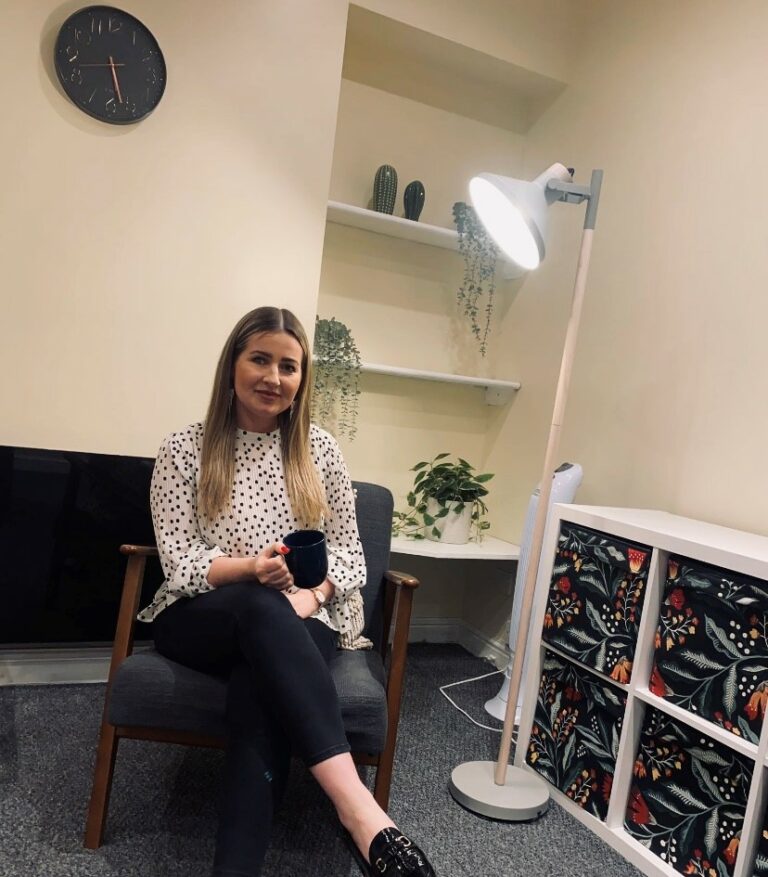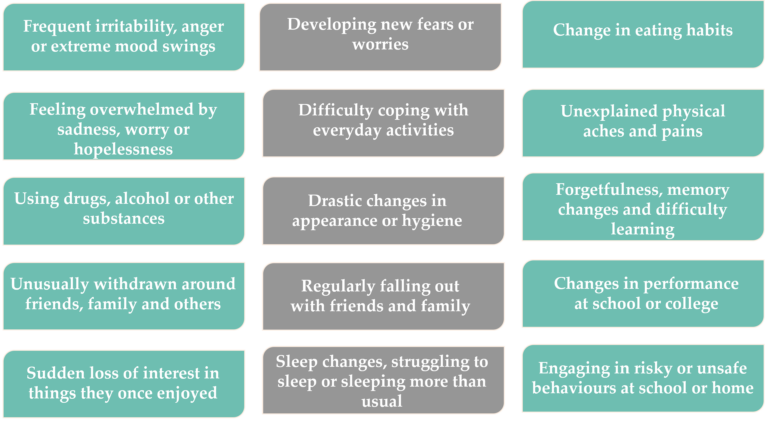
A PARENTS' GUIDE;
TALKING TO YOUR TEENAGER ABOUT COUNSELLING AND THEIR MENTAL HEALTH
Written by Dempsey Lengden (Counsellor for Adults and Teenagers 11+)
In this article we will explore the common signs that your teenager is struggling with their Mental Health and look at ways to talk to your teenager and navigate the difficult conversations.
First of all, as a parent it can be really hard to talk to your teenager about their friendships, relationships, emotions and well sometimes everything. So as much as you might feel that you know what’s best for your teenager, you can’t force them to go to therapy, simply because it won’t be effective and they might not engage with the therapist and this could give them a negative perspective of therapy.
Teenagers, like adults, have to want to engage in therapy themselves, as this is the first step towards achieving positive results. Counselling for teenagers and kids can be really daunting as they might worry that something is “wrong” with them or they might worry they won’t know what to talk about or find it difficult to share their experiences with a stranger. These are common worries and the right counsellor will ensure that your child feels safe and comfortable when sharing any difficulties that they might bring.
If you feel unsure about how to approach your teenager to talk about their mental health or introduce the idea of counselling and other support, take a look at the guide below which has some useful information and ideas of how to approach difficult conversations.
1. OPEN UP A CONVERSATION ABOUT HOW THEY ARE DOING
It can be really useful to approach this conversation while walking, playing a game or doing an activity so it feels less like a “big chat” and more like a gentle conversation. You might not know what to say, where to start or you might be worried about how they will react. If you know about the issue your teen is facing you could ask them “how can I support you? do you need time to talk, space or something else”.
If you don’t know the full story of what’s happening for them, you could say something like “If you want to talk to me, I am here for you, alternatively if you would rather talk to somebody else that’s ok too”. These are both useful ways to talk in a sensitive way, giving your teenager the autonomy to decide what’s best for them, whilst empowering them to ask for what they need. It might also be useful to share a personal struggle of your own with your teenager to let them know that they are not alone and normalise Mental Health and the struggles we all face in life sometimes.
2. BE POSITIVE ABOUT COUNSELLING BEING AN OPTION
Sometimes Therapy is seen as something we do after a crisis, instead try looking at it as something we do before a crisis. It’s important to prevent and maintain mental health first of all so that it doesn’t lead you to a crisis point. Reassure them that it can help them to feel better, and that it’s okay for them to give it a try and then stop at any point if it doesn’t feel right for them. Counselling doesn’t have to be a lengthy process, which means that some people find a few sessions helpful whilst others find working together for a few months can help them to process their experiences.
Therapy sessions can also take place outside of their school/college environment, which can really help with the stigma that often gets attached to therapy as teenagers often don’t want others to know they are in therapy. This also means that they are in control over who knows, if anybody, about them going to therapy and this can help them to feel more confident about the idea of getting support from a counsellor. If they still feel unsure about counselling they can have a read through some of the information on my frequently asked questions page by following this link.
COUNSELLING FOR TEENAGERS & KIDS 11+ – DL Counselling Services
3. REASSURE THEM ABOUT WHATS INSIDE THEIR CONTROL
Choosing the right therapist is one of the most important factors of the therapy working for the client. There are lots of different therapists, each specialising in different theories and practice, it might be useful to have a look online together at some of the therapist profiles on reputable websites such as the Counselling Directory or the BACP until you find someone that they feel they might be able to relate to. Childrens counselling services are tailored to the child or teenager in need with the use of games, fidget toys and colouring as a way to help them to feel comfortable and encourage engagement.
Letting your teenager know that if they don’t get along with the therapist then they don’t have to keep going, they might feel more comfortable to try it if they know that they are in control of who they feel safe speaking to and knowing that if they don’t feel that it is beneficial or comfortable, then they can end the sessions at any time.
Here is a link to two trusted websites as mentioned about, where you can find information about qualified and professional counsellors in your local area.
4. STRUGGLING TO LEAVE THE HOUSE?
If your teenager is struggling to leave the house, or even their bedroom, you could suggest giving online therapy sessions a try. This way your teenager can engage in counselling from the comfort of their own home. They might feel more comfortable being surrounded by their own personal belongings, in a safe space that they are familiar with so that they can explore how they are feeling and open up about their experiences.
They can also bring along a drink and a favourite item if that helps, counselling works best when the teenager feels safe and comfortable to explore, so in my counselling sessions I always encourage teenagers to bring whatever items make them feel comfortable.
SIGNS YOUR TEENAGER IS STRUGGLING WITH THEIR MENTAL HEALTH
We all struggle at times with our Mental Health sometimes and it’s important to let your teenager know that no matter what they are going through, you are there if and when they need you. Sometimes they might not realise that what they are experiencing is having a negative impact on other areas of their lives too, and that’s where you step in as a curious and loving parent, ready to offer support, compassion and understanding during this difficult period in their lives.
Here are some of the signs that you might notice if your teenager is struggling with their mental health;

If you notice any changes or feel that your Teenager may be struggling with their Mental Health and it is having an impact on their quality of life, education, work or relationships, please get in touch to discuss how I work and how counselling sessions can help to support your teenager with their mental health. You can also click any of the links below to find out more about me and how I work to see if therapy would be right for your teen.
